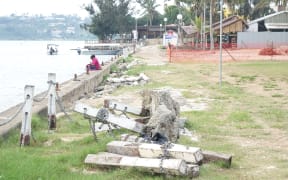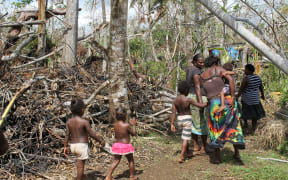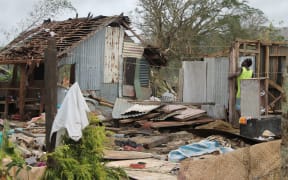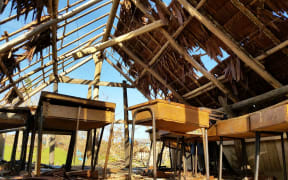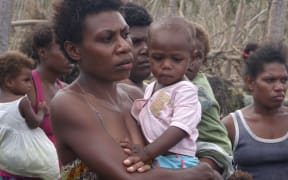An Australian aid group says its work preparing Vanuatu communities before Cyclone Pam paid off and there needs to be more investment in refresher courses and support for such schemes.
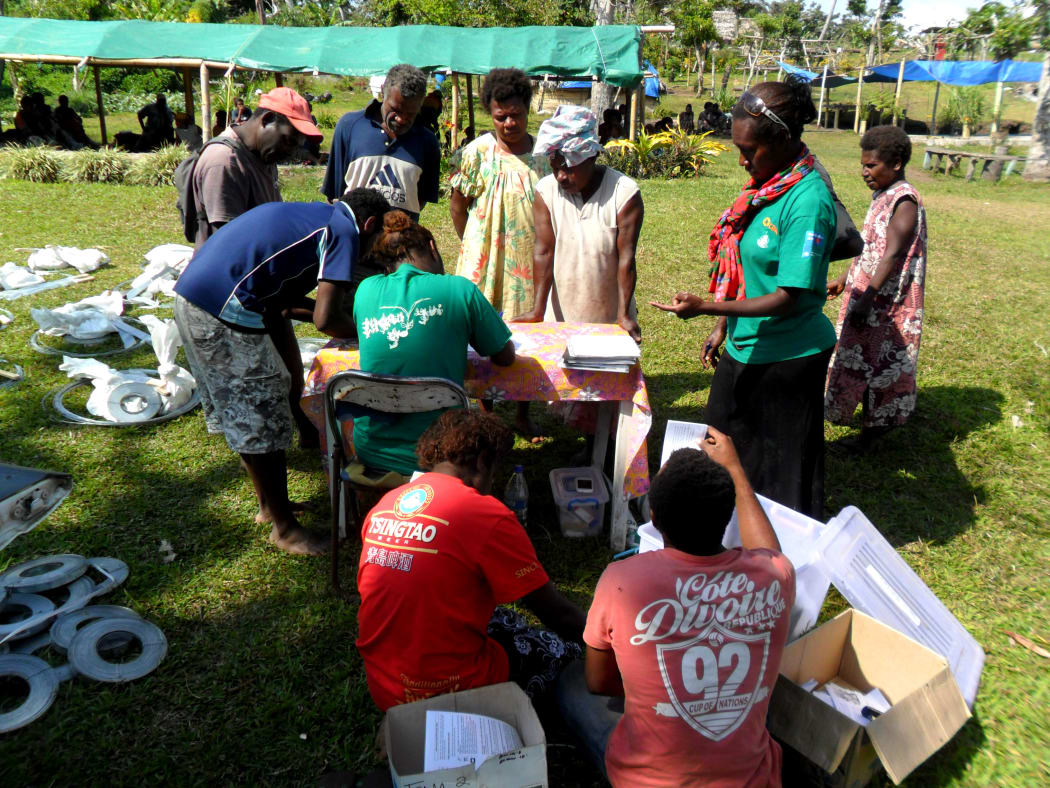
Rebuild kits being distributed on Tanna in Vanuatu by Care International. Photo: RNZI Courtesy of Care International
CARE Australia has reported back on its work before last year's devastating cyclone to coincide with International Disaster Risk Reduction Day today.
It found that early warning of a disaster alone is not enough and emergency information needs to come from a trusted source.
CARE's country director for Vanuatu, Megan Chisholm, said communities also need to know how to interpret it.
"In the communities where we worked on programmes before the cyclone we had trained a number of community members to understand the alerts and when the information came those people had a clear role and responsibility in that community and the community respected and listened to them."
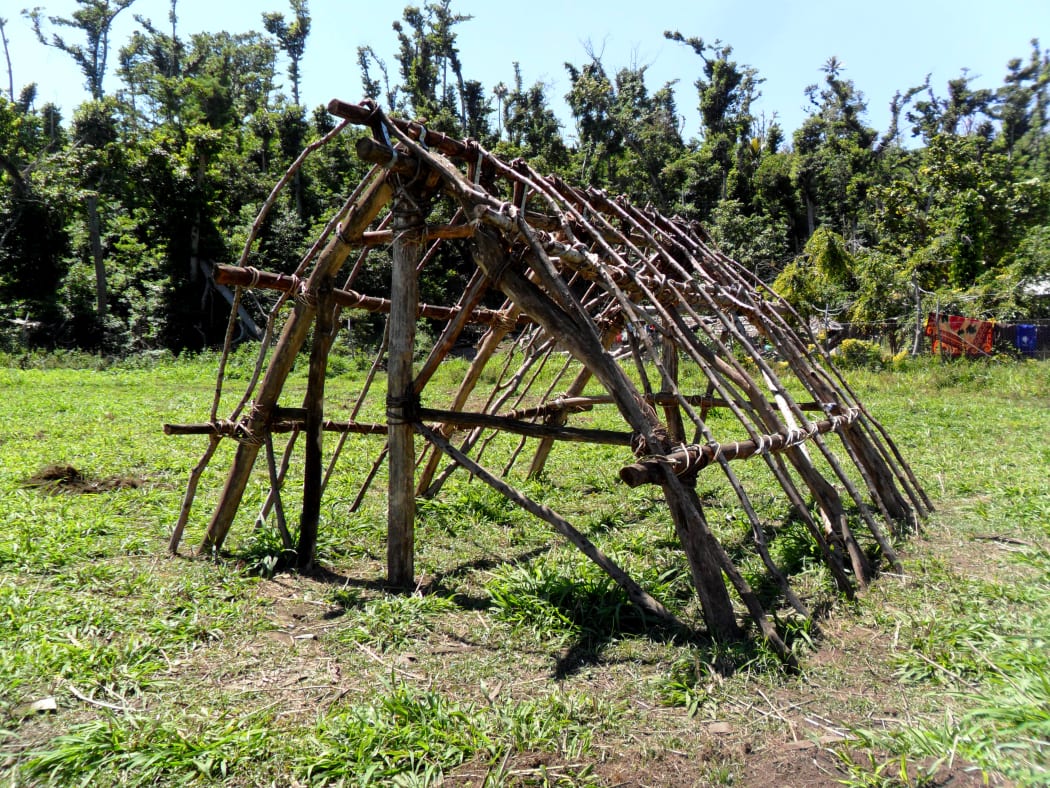
The traditional Vanuatu Nimaleten or custom house structure. Photo: RNZI Courtesy of Care International
Ms Chisholm said communities fared better where women had been empowered to take on leadership roles in disaster.
Empowering women to take on leadership roles in a disaster also helps communities fare better.
There was better preparation and resilience in communities where they had trained men and women to work together and women had leadership roles as well she said.
"In communities where we had not worked on disaster risk reduction, women's roles were not as strong. There were examples where women heard the cyclone alerts and wanted to go into the garden and prepare food but the men didn't believe them and didn't think a cyclone was coming and so didn't let them prepare and they were much less effective."
Ms Chisholm said villagers respected and listened to those in the community who had been trained up to understand the alerts and given a clear role and responsibility in disasters.
